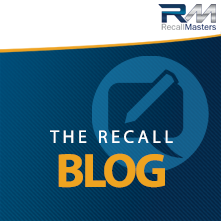Technology, Recalls, and Inevitable Challenges
Technology, Recalls, and Inevitable Challenges
A Blog Post by Sean Reyes, Chief Marketing Officer for Recall Masters
As vehicles become increasingly advanced, many OEMs are integrating technology that includes the ability to upload software updates by over-the-air (OTA) methods. Tesla has been doing this since its inception. But there are only so many repairs that can be solved from afar. While it is great that some of these recalls can be accomplished without the customer going into a dealership, what happens when they can’t – or won’t? And, even when the vehicle owner wants to comply with the recall notice, does a factory-direct model accommodate service at a local level as a dealer does?
It is well known that there is a huge issue with recall compliance — whether that is because the owner trashes the notice, doesn’t have time, doesn’t care, can’t be reached– or whatever the reason may be. How about second or third-generation owners that may never get notified?
Consider what happens when the vehicle dies from lack of electricity – it’s not like an OEM beam the car some more? What about when EV owners need to replace their tires? According to Automotive News, this is a big concern as dealerships and tire manufacturers don’t have inventory for OEM or aftermarket tires. Can new tires be solved OTA? No. What about the front trunk flying off while being driven? Can Tesla replace the front trunk OTA? No. I’m all in favor of whatever is convenient for the consumer and which promotes safety – that includes over-the-air updates and mobile repair in the consumer’s driveway. Even with EVs and the volume of software/electronics recalls associated with this next generation of vehicles, we’ll still service centers for more complex repairs or those that require a lift.
While EVs present a potential solution to environmental concerns, they are more expensive than combustion engine vehicles. In and of itself, this presents a challenge. The lack of EV-trained technicians or nearby Tesla service facilities for most consumers presents challenges. It’s hard enough to get consumers to drive 5 miles to their local dealership. How can we expect them to drive a potential 100 miles to get a “physical” recall fixed that cannot be done OTA?
Not to pick on Tesla, but these issues are going to increase as OEMs start relying on OTA fixes. We need to address them now, well before other factories subscribe to a model that does not protect vehicle owners from dangerous recalls or promote consumer interests. Pre-owned Teslas are showing up at dealerships. When those vehicles sell, the buyer becomes second-generation. And, you know what? According to a recent article on Fox News, pre-owned Teslas (both Model 3 and Model Y) are TWO of the five most desired vehicles as of May 2022. They are showing up for sale at dealerships that do not have technicians or equipment to recondition them.
On the consumer side, electric vehicles (EVs) cost 2.3 times more to service than internal combustion engine (ICE) vehicles, according to Automotive News. Simply installing charging stations is upwards of $220,000, which some OEMs are mandating.
I am certainly not saying that EVs are bad, only that they add a new layer of challenge to recall repairs from every angle and that, without local dealerships who can thoroughly assist consumers, we need to reset our processes. Some dealers can’t afford to retrofit their dealerships to OEM standards which, assuming everyone ends up with an EV, will force them out of business.
Then we have the challenge of servicing those vehicles that cannot be repaired via an OTA because the recall is physical and not software related. Then there is the challenge of getting first-generation owners to come in and get their EV recall repair completed — which has been a challenge for years with ICE vehicles. And now we are seeing used EVs being sold which creates more generations of owners. And these second and third-generation owners are that much harder to reach.
It’s kind of like that butterfly that flaps its wings and creates a tornado on the other side of the world. We don’t know where this phenomenon of circumstances will end up or how OEMs will solve it. But people are indeed dying because technology has failed in their vehicles and, no matter how many that number is, one is too many. Much less three.
About the Author


